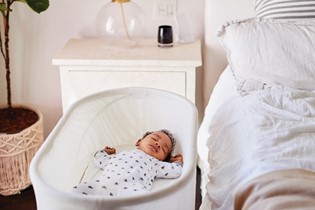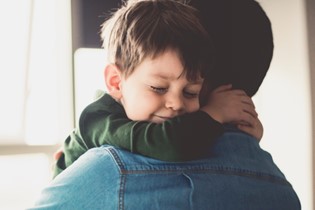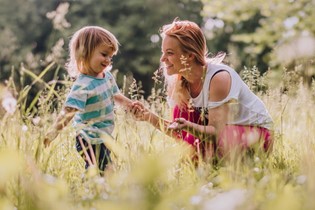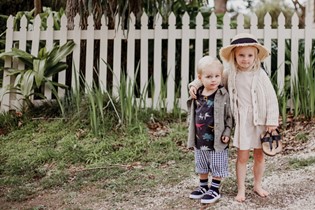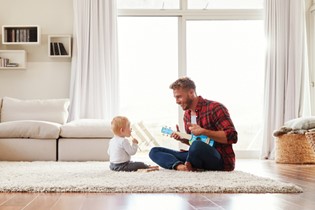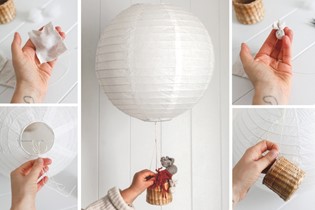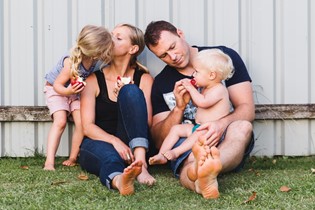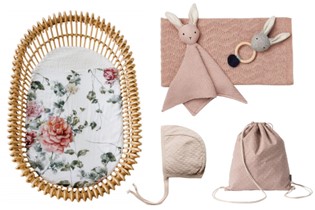Motherhood: journey to mindfulness
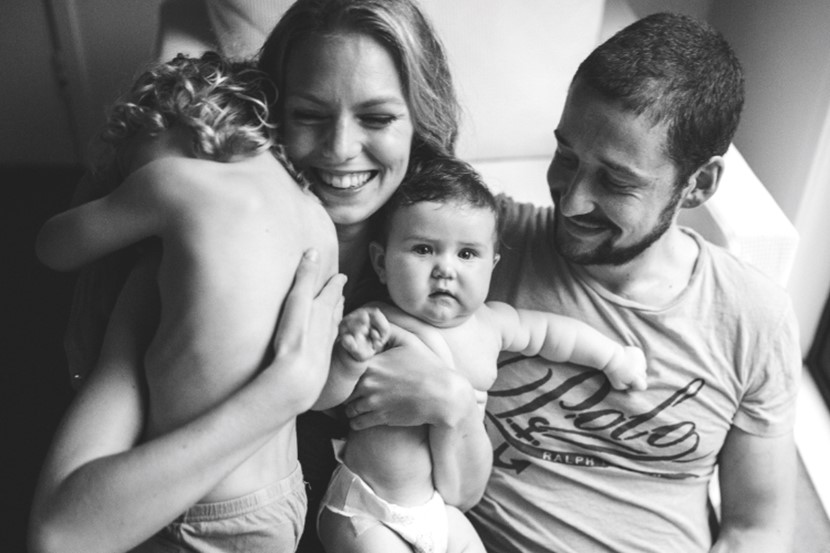
Clinical psychologist Dr Chantal Hofstee shares how the challenges of motherhood led her to discover the power of the mind.
My whole life changed when I became a mother almost seven years ago. It became richer and happier in some ways, but harder and lonelier in others. I have two beautiful children and another on the way, but before they arrived, I had an adventurous life, living and travelling abroad. In 2007 I returned home to the Netherlands to continue my studies in clinical psychology. While there, I met and (after a whirlwind romance) married my husband Pieter. When I’d finished my studies, we packed up our things and travelled the world for almost a year. We landed in New Zealand and decided to stay for ‘a while’ – we were young and free and did whatever we wanted. After two years in New Zealand, we were ready to start a family. We didn’t plan or think too much about it – it simply felt like the right thing to do. When our son Sem arrived it was beautiful and amazing. I’d had a textbook pregnancy and then a textbook birth; I had some breastfeeding hurdles, but sorted those out. However, the next phase of life was a real challenge, and one I was completely unprepared for.
‘ME TIME’
Somehow, my mental image of a happy, bohemian family lounging about together didn’t quite fit the reality of my daily life. My husband worked long hours and I’d chosen to be a stay-at-home mum because I thought that was the best thing I could do for my son. I loved my child more than anything and that love couldn’t compare to anything else in this world. Yet I mourned the loss of my former life. The routine was gone, the ‘me time’ was gone, my social circle became very small, partially because we were the first of our group of friends to have children. After the initial weeks of baby bliss, I started to really suffer. I suffered in silence, which, in hindsight, was very unhelpful. I kept quiet about it mostly because I believed being home with my child was the best, and therefore the only, option – especially as we had no family around. Even though I didn’t have to ‘do’ much and had a very supportive husband (although he wasn’t at home much because of his job), I still found it hard and lonely. I craved alone time, mental stimulation and to be part of something more than what my little world had become. I missed my old adventurous and mentally stimulating life, and when I realised that my day’s highlights had turned into going to the supermarket or a mums’ coffee group, I also started to miss my old self.
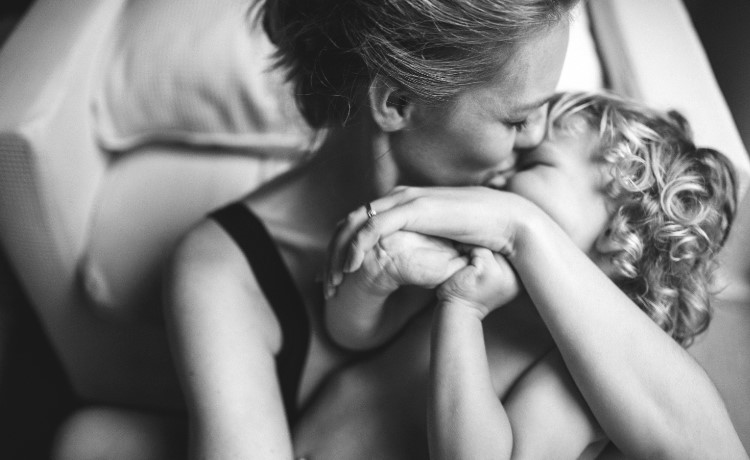
HIDDEN DEPRESSION
Looking back, I really did show signs of having depression, but even with my background in clinical psychology, I still didn’t put the pieces together. Depression is something we look for shortly after giving birth, and I didn’t think that being bored out of my mind was something to really worry about. I kept telling myself I should be grateful because we could afford for me to stay home, and I thought ‘this is what’s best for our son’. Now, I can see that it wasn’t, but back then I was slowly fading away and my happiness and peace of mind were escaping me in the process.
When leaving the house started to feel like too much effort, I got a real shock and realised something had to change. I drew on my psychology training and the first helpful strategy that came to mind was mindfulness. I’d learned about mindfulness while studying and some of my teachers and mentors were great fans. Though it had never interested me then, now I was drawn to it because I really needed something new.

DISCOVERING MINDFULNESS
I began reading and researching and started a simple, but effective, mindfulness practice for myself. It was not sitting in a lotus position for 20 minutes chanting ‘ohmmm’, but was something that could fit the reality of having a little human who needed me almost 100% of the time. I started practising mindfulness of the breath and senses with my cup of morning coffee as the baby was asleep. I would simply take a few minutes to really be present – to smell and taste my coffee, to listen to the birds, to feel the sun on my skin and to stay present until I finished the coffee. Every time my thoughts wandered (to things like my to-do list, or ‘how long have I got until he wakes up?’), I would gently and kindly bring my attention back to the coffee and refocus on what was happening right then and there.
I also practised mindfulness of my emotions by accepting my feelings, rather than judging myself for how I felt. Instead of saying ‘Just get over yourself, you’re lucky you don’t have to work, you should be enjoying this!’, I was honest and told myself ‘Being home with a baby all day long is hard – and it’s okay to find it hard’. Being mindful of myself and my emotions was uncomfortable at first, but over time it became a huge relief and the more I practised, the more the stress and frustration subsided.
By reclaiming those moments of real ‘me time’ every day (mindfulness of the breath and senses) and by being kind and non-judgmental towards my feelings (mindfulness of emotions), I began regaining a sense of self and some peace of mind.
|
MINDFULNESS IN PRACTICE
Mindfulness of emotions:
|
BACK TO WORK
Mindfulness helped me to acknowledge the fact that while I love my children dearly, I don’t love being a stay-at-home mum, and that’s okay. Eventually I returned to work part-time, and here mindfulness helped me again. Though I loved going back to work, the guilt and stress of leaving my baby with someone else was hard – even when that ‘someone else’ was his dad! I found practising mindfulness of emotions was a real life-saver in this situation.
Fast forward six and a half years and mindfulness is at the core of my life, my parenting and my work as a clinical psychologist. At Renew Your Mind, my colleagues and I teach the techniques that have been my lifeline to thousands of people. Our practice offers courses in community mindfulness and mindful parenting, and we also facilitate workshops in business wellbeing and stress management.

As our family grows (we’re expecting baby number three in January) and as the children grow older, I find that my regular mindfulness practice keeps my stress under control. To me that’s really the key to being as good a parent as possible. We all have times when we’re a great parent, partner and friend; and times when we’re patient, kind, empathetic and understanding, are mindful in our responses to others and in our self-talk, and as a result, life is sweet! When we’re present in the moment and are enjoying life – even when it isn’t perfect – we really are the best version of ourselves. However, when we’re impatient, snappy and grumpy, and we talk to our loved ones in ways we regret afterward, more often than not stress has taken control of our brain and turned us into our worst selves. Mindfulness is an excellent tool to help counter this, and at our clinic we emphasise the necessity of taking full responsibility for your own ‘brain state’. One way to do this is to keep stress at manageable levels and to train yourself to get better at managing stress. It sounds challenging, but mindfulness really does help and the techniques are backed by research. People who attend our Mindfulness and Mindful Parenting courses often report a significant decrease in their stress levels within only a few weeks. Practising mindfulness is just like training your muscles: by doing a bit every day, even just for a few minutes, you’ll be able to cope with more and more challenges. Mindfulness doesn’t make me a perfect parent, and it hasn’t produced perfect children either, but I’m certain it makes me a better and happier parent than I would be without it.
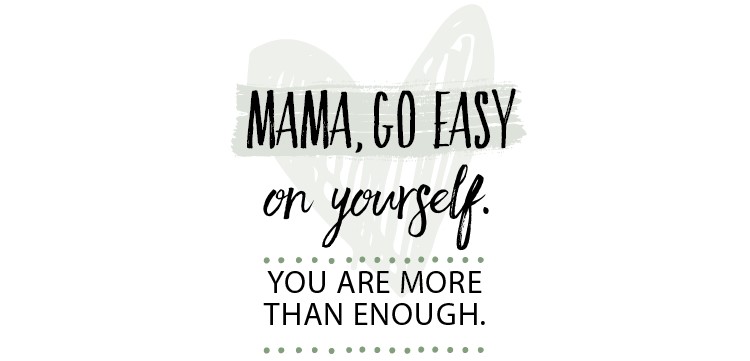
Chantal Hofstee is the mindful mum of Sem and Isha, a clinical psychologist, an executive coach and the author of Renew Your Mind and Reach Your Goals Without Stressing Out. Find out more about her practice at renewyourmind.co.nz.

AS FEATURED IN ISSUE 47 OF OHbaby! MAGAZINE. CHECK OUT OTHER ARTICLES IN THIS ISSUE BELOW
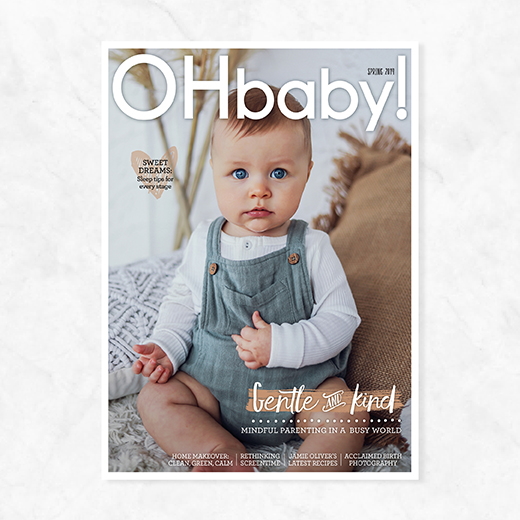

 Focus your attention on the present moment by focussing on:
Focus your attention on the present moment by focussing on: